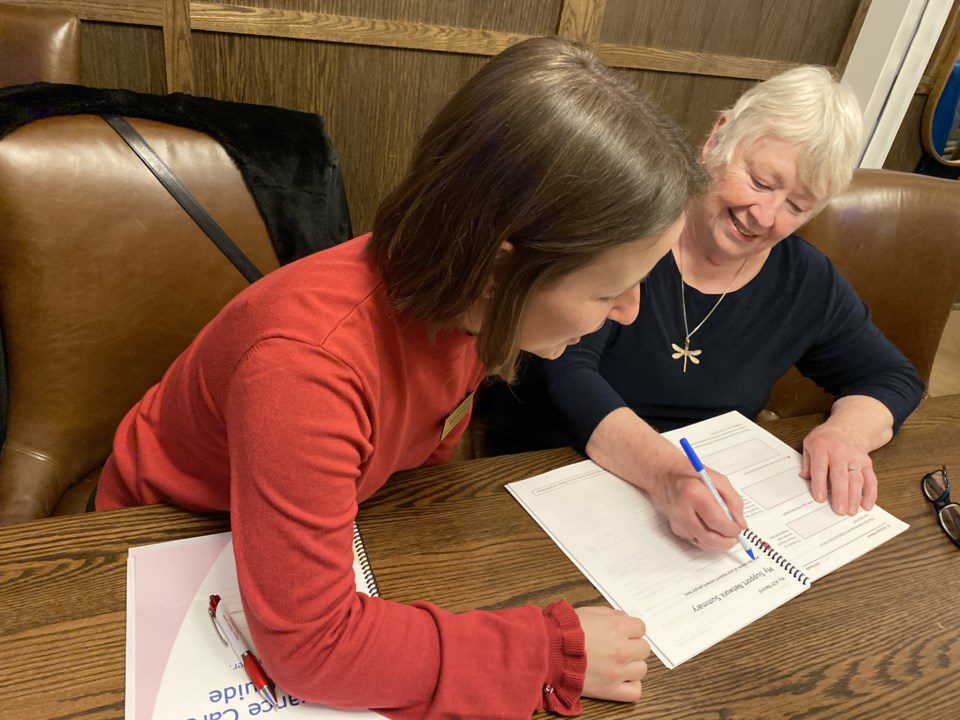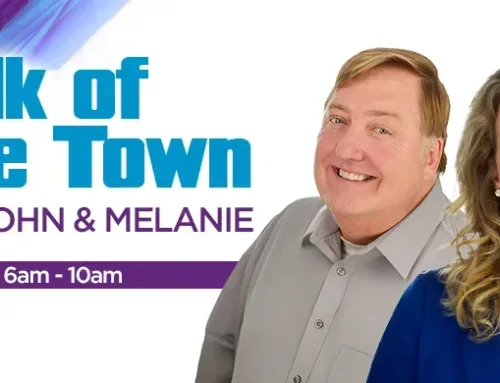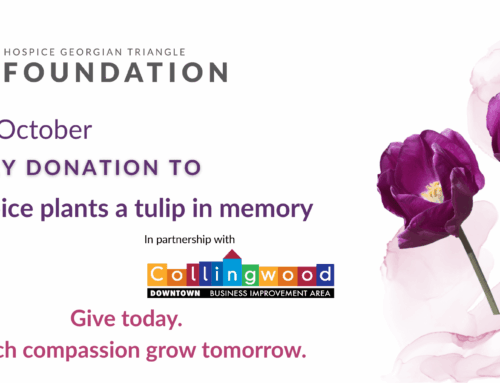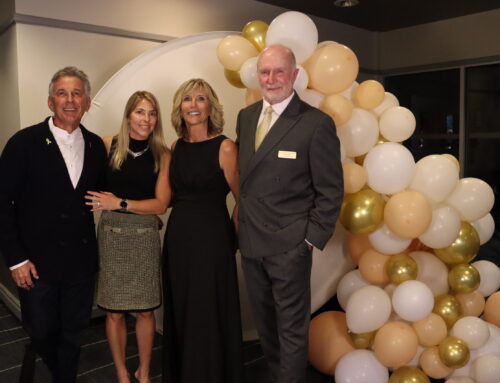Simple conversations: why advance care planning matters
Advanced care planning with Hospice Georgian Triangle – Collingwood News
Talking about end-of-life wishes can be daunting for many people, but Hospice Georgian Triangle encourages individuals and families to consider the benefits of advanced care planning sooner rather than later.
Advance care planning is more than medical directives; it’s a comprehensive process of discussing personal values, naming decision-makers, and preparing for a time when one may be unable to make health or personal care decisions. The Hospice Georgian Triangle Community Team believe these conversations not only ensure an individual’s voice is heard when it matters most but also bring peace of mind to loved ones.
“Advance care planning was a new term for me when I started my role with Hospice Georgian Triangle,” says Public Relations and Communications Manager Kelly O’Neil. “Recently, I decided to sign up for a Hospice Georgian Triangle advance care planning workshop hosted by Grief and Bereavement Counsellor Vanessa Voorberg and Clinical Coach Lisa Wright.”
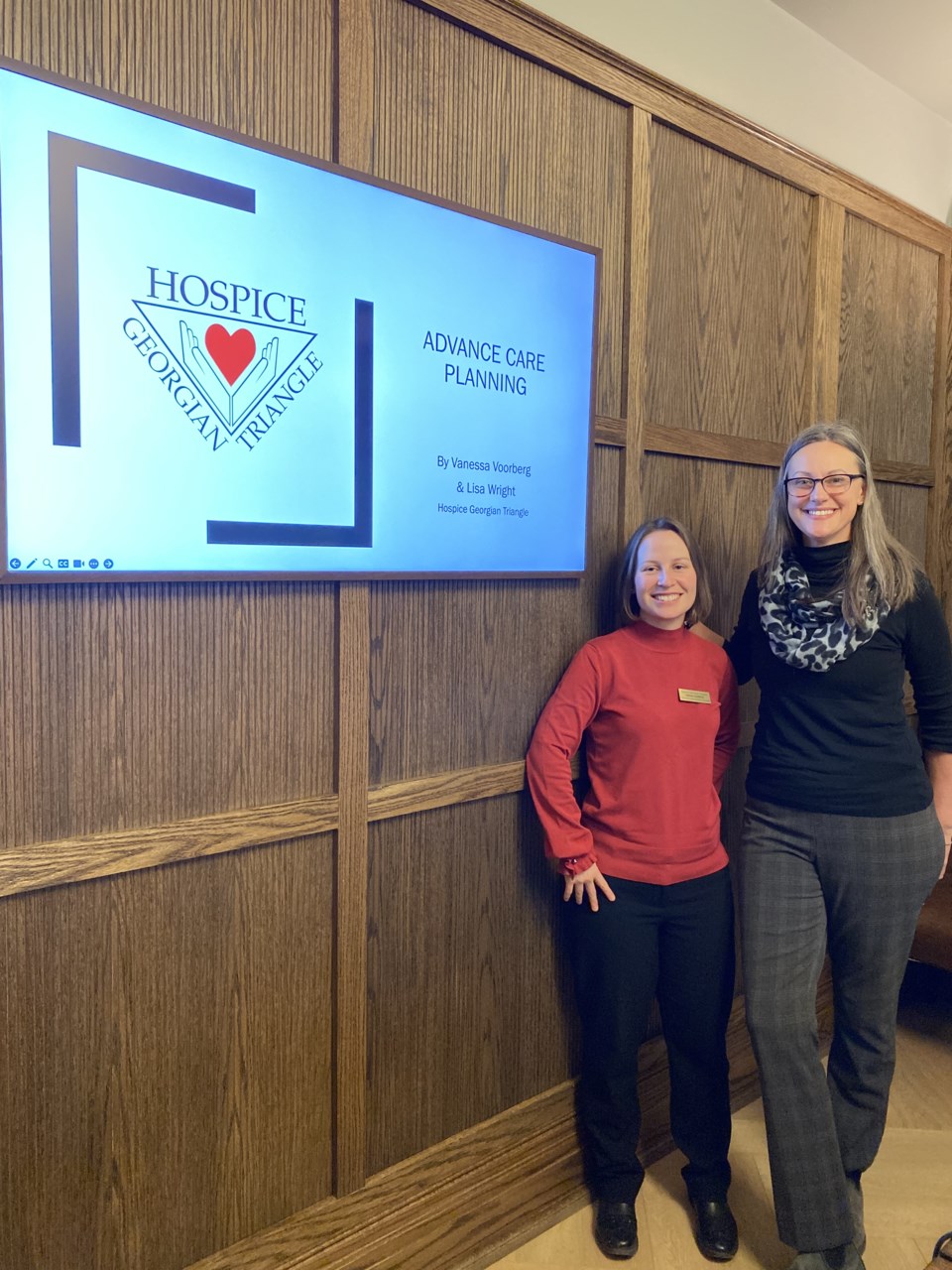
O’Neil attended the workshop with her mother and recalls receiving “My Advance Care Guide,” a resource published by Advance Care Planning Canada. “I have an 11-year-old daughter and consider myself to be middle-aged, whether I like to admit it or not. My mom is approaching her golden years with a family that includes four lovely grandchildren,” she explains. “Regardless of our age, we learned that it’s never too early to think about advance care planning. As soon as you have your driver’s license, was recommended by Vanessa.”
When the pair arrived at the session, they were greeted by a quote from Hospice Georgian Triangle CEO Trish Rawn: “What is advanced care planning? It’s an opportunity.”
O’Neil emphasizes the importance of clearly naming a substitute decision-maker—someone trusted to speak on one’s behalf if necessary. “Think about it,” she says. “It could be a family member, a trusted friend, or a legal or financial professional.”
According to the workshop guide, advance care planning helps individuals:
- Think about what is important to you
- Learn about the care you want
- Choose decisions makers that you trust
- Share your wishes and preferences so that the right people know what you want
- Record your preferences and decision-maker (s)
Beyond logistics and legalities, the workshop explored opportunities for individuals to share their legacies with loved ones. Grief and Bereavement Counsellor Vanessa Voorberg recalled a woman who compiled a cookbook of her favourite recipes.
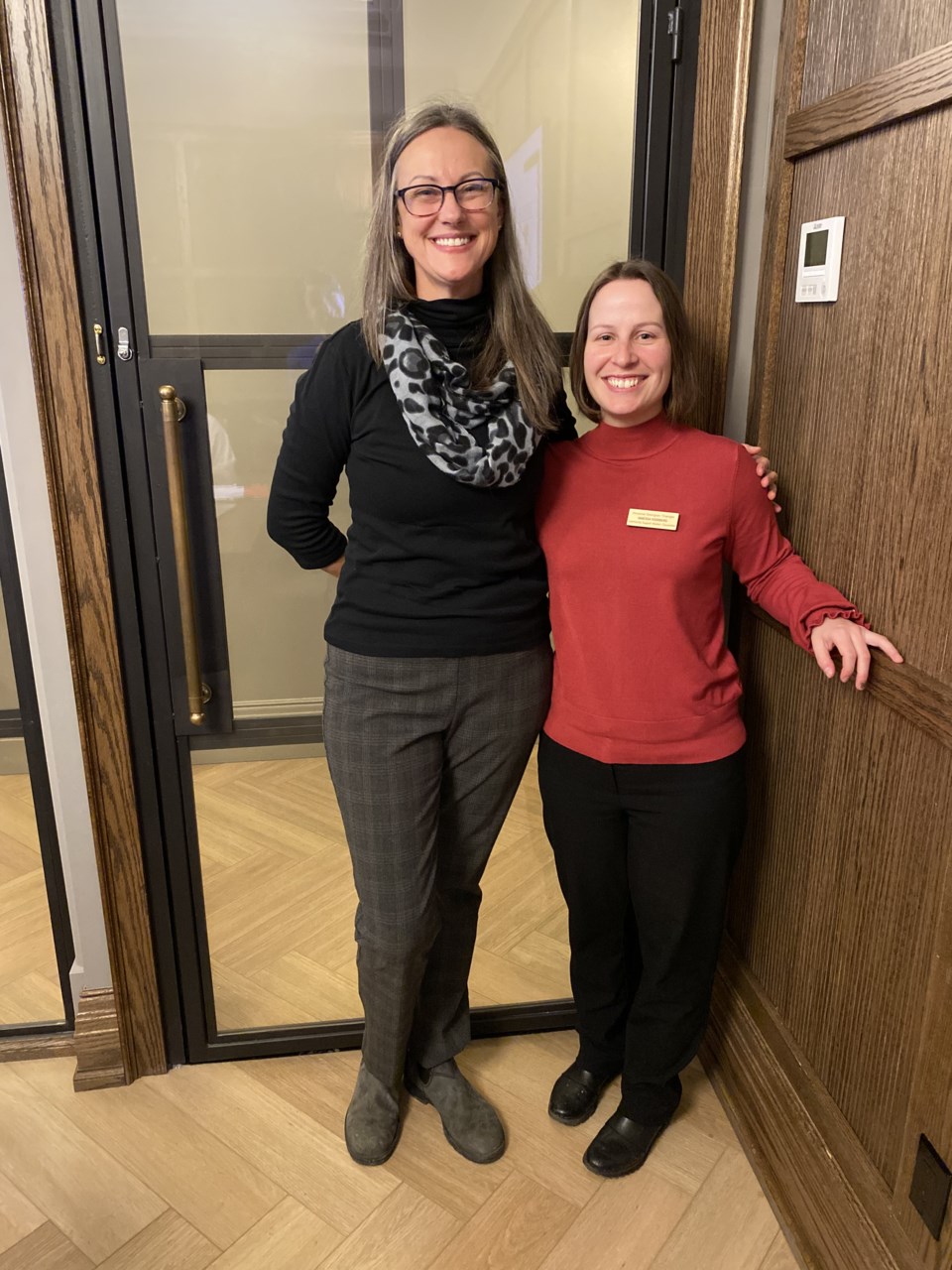
“Having conversations about our care also gives us the chance to talk about our hopes and dreams—both fulfilled and unfulfilled,” she said. “In the face of a life-changing diagnosis, how do we help people hold onto what matters most to them and also give loved ones something physical to hold onto as well?”
Clinical Coach Lisa Wright described a woman who scheduled emails for her children and family to receive on future milestones like birthdays and graduations. “Imagine an unexpected message arriving from your mom on your wedding day?” she said.
“As a registered nurse working in palliative care, end-of-life planning is my passion project because I love learning what matters most to people and shifting the focus to what makes their lives meaningful,” Wright added.
“I have witnessed more than my share of emotional distress when substitute decision-makers are asked to make important decisions on a patient’s behalf when they haven’t had these conversations in advance. Advanced care planning conversations benefit everyone involved.”
For O’Neil, the workshop sparked a desire to meet as a family. “I asked my mom for a family meeting, which she will hopefully consider while we can all have this special conversation. There was so much to learn and think about in an hour, but we now have the resources to get started.”
Individuals interested in exploring advance care planning can visit AdvanceCarePlanningCanada.ca to access “My Advance Care Guide.” Voorberg and Wright plan to host a series of workshops; the next session takes place on Monday, March 24, at 1 p.m. in the Wasaga Beach Public Library’s Learning Lab.
“Advance Care Planning is an opportunity, it is an honour, and it can be easier than you think,” O’Neil says. “Please think it through and consider making it part of your plan and your legacy. The time is now.”
About Hospice Georgian Triangle
Hospice Georgian Triangle, founded in 1987, has evolved to provide compassionate care at home and Campbell House for individuals and families dealing with life-limiting illnesses in Blue Mountains, Collingwood, Wasaga Beach, and Clearview Township communities.
Hospice Georgian Triangle’s care programs, which include end-of-life care and grief and bereavement counselling, are free to users and focus on the physical, emotional, and spiritual needs of both the patient and family, enhancing quality of life. The organization relies on government funding and the generosity of donors to provide all its services and programs.
For more information on Hospice Georgian Triangle’s services and programs, visit Hospice Georgian Triangle or call 705-444-2555.
To donate, visit the Hospice Georgian Triangle Foundation.
